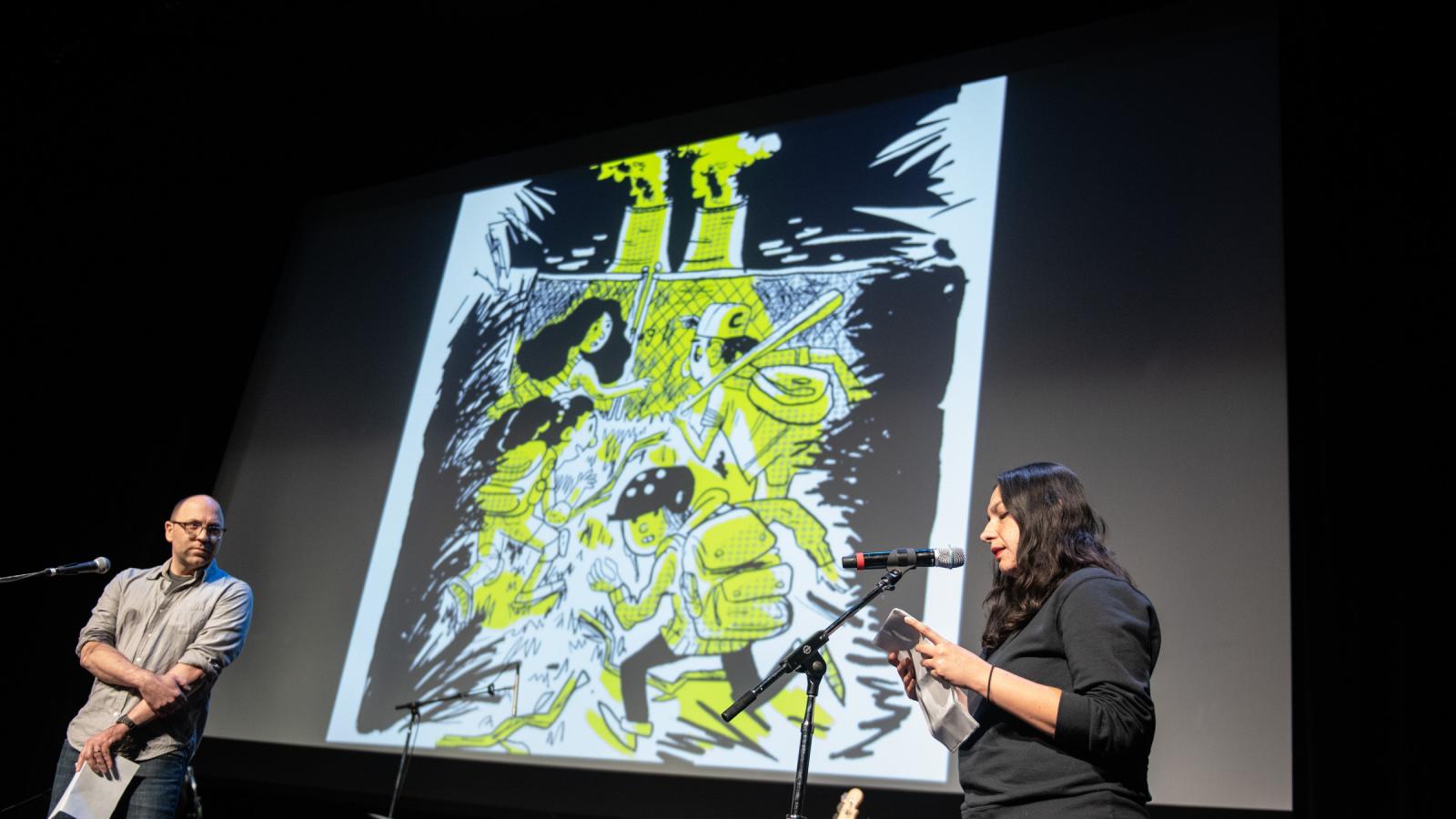Crossing Cultures through Literature with the Lit & Luz Festival

The translation rate for literature is notoriously low in the United States—of the hundreds of thousands of books published in this country every year, only about 3 percent are works in translation. In 2013, these statistics prompted MAKE: A Literary Magazine to devote an entire issue of its publication to Spanish-English translations. The response was so positive that the magazine has not only featured translated works in every subsequent issue, but in 2014, it launched an annual festival dedicated to cross-cultural literary exchange.
Supported by the National Endowment for the Arts, the Lit & Luz Festival of Language, Literature, and Art hosts a series of events in Chicago every autumn, followed by complementary events in Mexico City every winter. Events range from readings to artist talks to collaborative performances, all of them designed to highlight contemporary writers, visual artists, and musicians from Mexico and the United States. From October 12th through 19th, the Chicago festival will feature a keynote from Big Read author Luis Alberto Urrea, a reading by Verónica Gerber Bicecci, conversations about the 50th anniversary of Stonewall, and a Live Magazine Show featuring collaborations between writers, visual artists, and musicians.
“We really want to introduce audiences to contemporary writers and artists living in Mexico,” said Sarah Dodson, executive director of MAKE Literary Productions, which produces both the festival and the magazine. “But we also hope that audiences are introduced to writers and artists that are working in Chicago and who they may not have encountered before.” The same is true for the Mexico City iteration, where events also introduce residents to new artists from home and abroad.
By featuring a wide range of voices, Dodson hopes that Lit & Luz will show audiences that their neighboring culture isn’t monolithic, and that neither location can be solely known by “the issues which are most visible,” Dodson said. “Literature is an inroad to understanding a culture.”
While many of the featured authors do write about contemporary social or political issues that audiences might already be familiar with from news stories, Dodson hopes that Lit & Luz will help them better understand the context and impact of these events, which might not be captured in headlines. “When literature is trying to dissect why this is happening, and to whom it's happening, and the real emotions that are drawn from it and forced on people, then that changes how something is perceived,” Dodson said. “It leads them to know more about a country, and the communities within it, and not rely on limited sources.”
As attendance at Lit & Luz has progressively grown—over 1,000 people attend each country’s iteration—Dodson is hopeful that the festival and others like it will fuel a greater interest in translation in general, which would in turn promote greater cultural understanding. “It's always exciting in both countries to see people come out and show up and be interested,” said Dodson. “We [want to keep] having those conversations with participants, and provide space for them to lead conversations about issues impacting their lives and communities."




